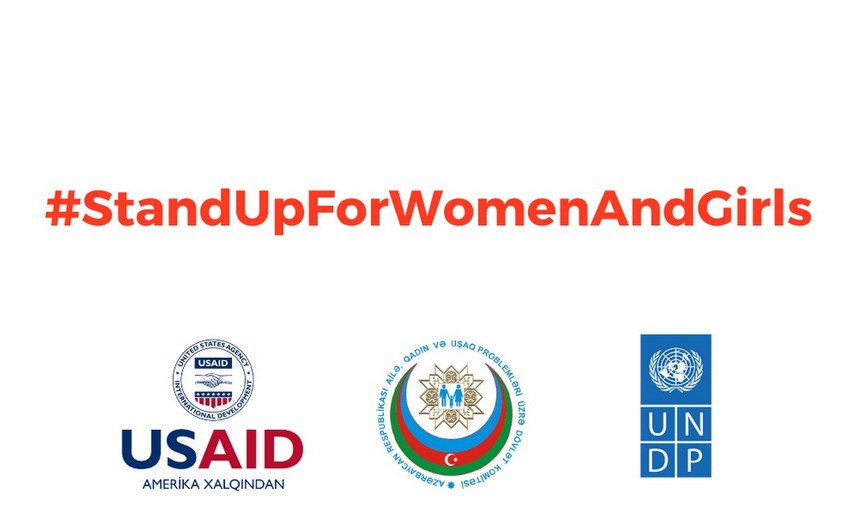Reports of domestic violence against women and girls have multiplied over the past year, with a fivefold rise in calls to helplines throughout the world.
The COVID-19 pandemic and its impacts, including months of lockdown in many countries, have been accompanied by what many are calling a 'shadow pandemic' of domestic abuse and violence hidden behind closed doors.
"Report" presents a blog by Ms. Bahar Muradova, Chairperson of the State Committee for Family, Women and Children Affairs of the Republic of Azerbaijan Dr. Jaidev Singh, Director, USAID Azerbaijan, Mr. Alessandro Fracassetti, UNDP Resident Representative.
"One in every three women have been victims of physical or sexual violence worldwide, and this recent surge in reports of abuse further highlights the urgent need for preventative action to tackle gender-based violence.
In Azerbaijan, official statistics show that at least 1,038 women were victims of domestic violence in 2019. These figures are a serious call to action for each and every one of us.
The Government of Azerbaijan has promptly responded to this call by developing a new National Action Plan for Combating Domestic Violence – officially approved last month. The implementation of this plan over the coming months and years should set the foundations for a national referral mechanism and an improved framework for multi-sectoral partnerships to coordinate efforts to tackle the scourge of gender-based violence.
Over the past several months, we have been working closely together to identify the most effective and comprehensive approach to ensure the safety and legal rights of victims of abuse and to prevent more women and girls from falling victim to such violence.
The approach we have developed places a high priority on helping women empower themselves by becoming more financially independent and thus less vulnerable to violence and sexual abuse.
In line with this commitment, we just launched a major new four-year project entitled 'Stand Up for Women and Girls.'
This project will provide victims of abuse with safe spaces, protection, and counseling while improving women's access to essential services such as health, legal aid, and social support. Over the next four years, the project will further be implementing wide-ranging measures to help women gain financial independence through training in employable skills and support for setting up their businesses.
This project will be working closely with and further strengthening the network of Women's Resource Centers established throughout Azerbaijan. These Centers have already provided a safe space for over 6,000 women to meet, network, exchange ideas, and forge partnerships.
Because women tend to make greater investments in their children's health, nutrition, and education, our efforts to empower women also secure a brighter future for the country. In this way, too, we are improving the prospects for national social stability and security.
The COVID-19 pandemic and the recent active hostilities in the Nagorno-Karabakh conflict have increased women and girls' vulnerabilities. It is more important than ever that we hear and amplify women's stories to end the concealment of gender-based violence forever.
As the #MeToo social media campaign has shown, giving a voice and a human face to violence statistics is a powerful way to spur action. Women's stories need to be told, heard, and believed to bring about real change.
As brothers, sisters, fathers, mothers, friends, and neighbors, we also need to examine our role in ending gender-based violence in our families and communities. Ending violence against women is everyone's business, and every individual – men and women alike – must help prevent violence.
It's time for us to stand up for women and girls, every day and everywhere!"


 https://static.report.az/photo/75890dce-ce5c-3f11-a670-8cdab53d1932.jpeg
https://static.report.az/photo/75890dce-ce5c-3f11-a670-8cdab53d1932.jpeg

